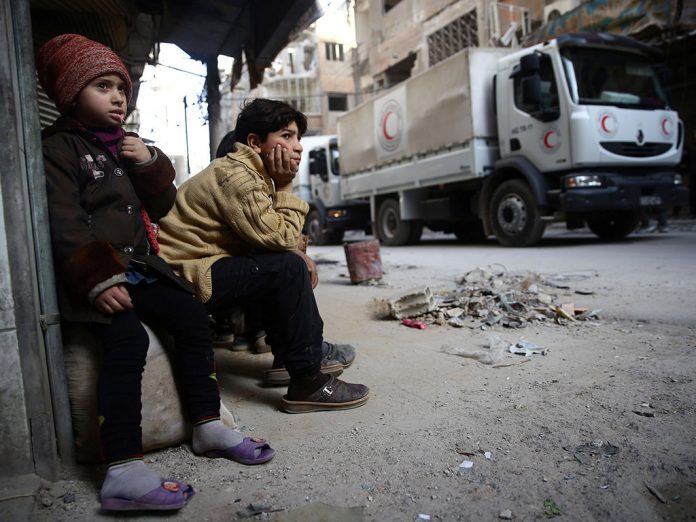The European Union has criticised the Syrian Regime and its allies for ignoring calls to stop fighting for at least 30 consecutive days. The UN Security Council on February 24 adopted a resolution requiring all parties to the Syrian conflict to immediately cease hostilities to enable the delivery of humanitarian assistance and evacuation of the critically sick and wounded.
High Representative/Vice-President Federica Mogherini and Commissioner Christos Stylianides issued a joint statement on the situation in Eastern Ghouta and elsewhere in Syria.
“The Syrian Regime and its allies continued their military offensive in blatant disregard of the provision of the resolution, of human suffering and of International Humanitarian Law,” they said. “The mere presence of Hayat Tahrir al Sham (HTS) in Eastern Ghouta cannot justify the continued indiscriminate shelling and bombing of the civilian population and of medical facilities, precisely what is happening in Eastern Ghouta.
“A year-long siege used for the purpose of starving the population and the indiscriminate shelling of the civilian population may amount to war crimes. Those responsible will be held accountable for their deeds. We therefore fully support the UN’s launch of investigations into that matter.”
On March 5, a UN aid convoy was finally allowed to enter Douma to bring medical and food supplies for 27,500 people in need. According to Mogherini and Stylianides, it’s a small positive step.
“But at the same time, it is disappointing that once again the Syrian regime removed critical medical items from the convoy in clear violation of International Humanitarian Law. And one convoy once in a while is far from sufficient,” they said.
The number of those in need of medical evacuation from the besieged enclave has grown to more than a thousand people, including many women and children.

